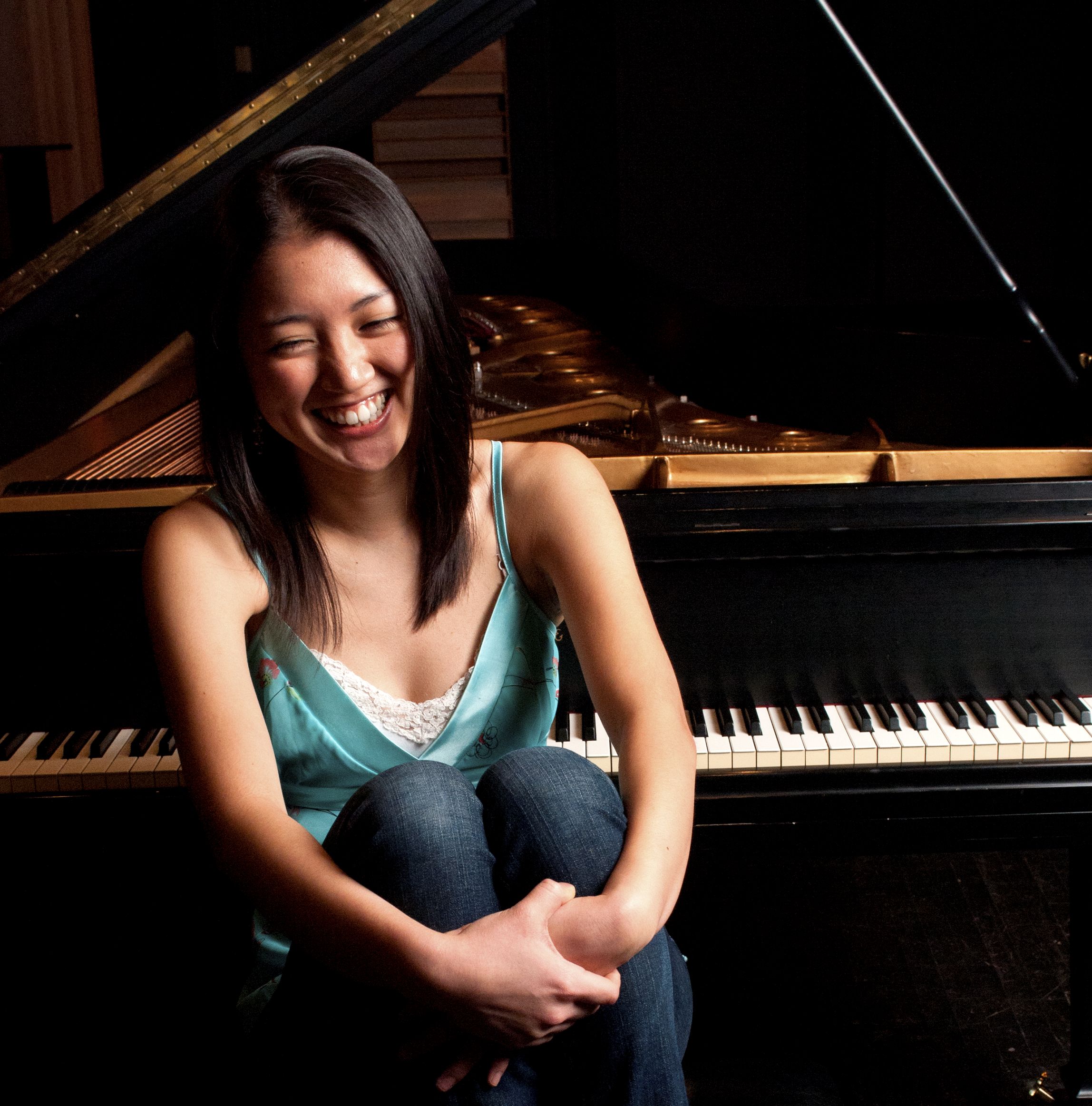Editor’s note: This story has been changed to correct the length of Sawada’s Alaska tour.
Anyone who wants to hear classical piano music played live usually has to travel wherever the piano and pianist are — most frequently to a concert hall or auditorium. Classical pianist Miki Sawada hopes for a different experience by taking her less-than-portable instrument on the road.
This weekend the Brooklyn-based Sawada will be landing in Anchorage for her first visit to Alaska, where she’ll spend three weeks hauling a piano around in a moving van for almost daily performances. Sawada and her piano will be stopping for seven planned shows — and a few unplanned ones, she hopes — on the Kenai Peninsula, appearing at Moose Pass’ Trail Lake Lodge, Veronica’s Cafe in Kenai, Odie’s Deli in Soldotna, and other locations before heading to Talkeetna for a second week of performances in the north.
“At its core it’s a very whimsical idea, and I hope people find it weird and surprising enough to be attracted,” Sawada said.
A filmmaker will follow the two-week Alaska tour, producing a documentary that Sawada hopes will also give insights to the places she visits. The name of the project is Gather Hear Alaska, a pun most obviously on “gather here,” but with other possible meanings as well, Sawada said.
“You could put a comma after ‘gather,’ like ‘Gather, hear Alaska’ — telling everybody else to listen to Alaska, because I’m hoping for the documentary film to get a really neat portrait of Alaskan communities,” Sawada said. “You could also put a comma after ‘gather hear, Alaska.’ That would be like beckoning Alaska to gather.”
Sawada, funded in part with a grant from the Alaska Humanities Forum, will be renting a moving van in Anchorage and loading up the piano — a hybrid digital instrument supplied by Anchorage’s Classic Pianos — and driving south to do her first scheduled stop at Cooper Landing on Sunday.
“I think I’m going to have a group of pieces that I can mix and choose from at any point, so depending on the crowd I can wing it,” Sawada said.
She’ll choose the pieces without focusing on specific eras or styles, but with the criteria that they be concise and engaging.
“Most of the pieces are around three minutes long, and focus on getting one core idea across, which makes them enjoyable and accessible to both classical music connoisseurs and first-time listeners,” Sawada wrote in an email.
They may include compositions by Bach, Schumann, Gershwin, Rachmaninoff, as well as pieces written for her by contemporary composers. One will be “The Same Trail,” by Homer native Conrad Winslow. Winslow now lives in Brooklyn also, where Sawada wrote that the two of them “run in the same circles, but haven’t had a chance to meet each other.”
Also in her Alaska repertoire will be pieces Sawada herself has composed with another unusual element for classical music: audience participation. These, Sawada said, were based on the ideas of early electronic composer Pauline Oliveros, who in the early 1970s created a series of “sonic meditations,” written as verbal instructions rather than scores and designed to bring attentive listening to sounds both musical and mundane — to “explore the idea of the division between composer and audience, what is music, what is not,” Sawada said.
“So you’ll have people standing up, making noise, engaging with other people and also with the space,” Sawada said.
Engagement between audience members, she said, is not usually a part of the traditional concert-hall performance, where attention is supposed to flow strictly from audience members to the performer, in a space divorced from the listener’s everyday life. When she sets up her piano in Veronica’s and Odie’s, she’ll be aiming for the opposite.
“I want it to happen in places that are familiar to everyone, already a gathering space,” Sawada said. “And they’ll sit around me, like in a half circle.”
Sawada has played her share of traditional concert-hall concerts, but also spent the first four months of 2016 doing nightly performances with a resident quintet aboard a cruise ship, for an audience who hadn’t necessarily come aboard hoping to hear classical music.
A self-described “nomad,” she’s performed in many venues traditional and otherwise. The stable point in these environments, she said, is the piano itself — an earlier title of her project was “Home is where the piano is.” She’ll be doing her Alaska road trip (anticipating what may be a similar tour of the Lower 48 in the future) with the intent to share this feeling.
“Some classical music is very difficult,” Sawada said. “But there’s such a wide range. I just think it has to be presented in a more engaging way. Not in a way that’s watered down or dumbed down ever. Just in a way that’s more thoughtful about what people want or what people need. And they may not even know they need it in their lives.”
This goal is “the serious side of it,” Sawada said.
“I also just thought it would be fun to put a piano in a van,” she added.
Reach Ben Boettger at benjamin.boettger@peninsulaclarion.com.

